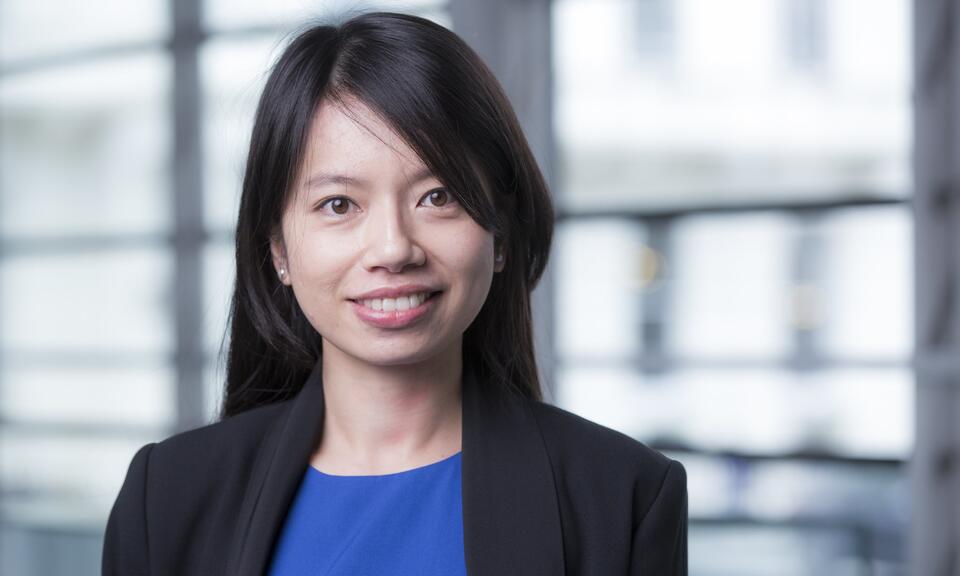Yu-Ting Lin

“My time at the Business School have opened my eyes to work in a fast-paced environment and to try things I have never done. I plan to continuously employ behavioural and quantitative methods to explore fundamental research questions that have a bearing on critical marketing issues.”
Your time at Imperial Business School
Why did you choose to study your programme and why specifically at Imperial Business School?
Imperial’s prestigious ranking together with excellence in science, engineering and technology attracted me the most. I was delighted to be awarded two scholarships (one was from the Business School and the other was from the Ministry of Education in Taiwan). Not to mention, the fit between my research interest with some of the faculty supported my final decision. Throughout the application process, the Imperial was committed to excelling in postgraduate education, especially doctoral studies.
What was the most important thing/learning point you took with you from the Business School?
When it comes to describe the intended learning outcomes in a PhD programme, most of us come across the important things including ability to question and critique, to probe and create, trade-off between exploration and exploitation, or quality development such as passion and persistence. These criteria are all essential and certainly can be transferrable seamlessly from the training. But there is another keystone feature that is related to neither book knowledge nor personal characteristics – effective apprenticeship. Having harmony and honesty with my mentors went a long way for healthy and productive relationships.
What advice would you give to a prospective student considering studying the same programme as you?
Action speaks louder than words. Academic freedom is the most rewarding aspect for doctoral students but is intimidating in the meantime because a variety of possibilities can become information overload leading to nowhere. There is no best decision except deeds are enacted the best after a decision is made. Documenting ideas, going over feedback in written form, and striving for agile iterations are some of the examples to put intellectual discussions into tangible materials. I know it is cliché to say, we are what we do, not what we say we’ll do.
What was the most surprising thing about the programme?
The Doctoral programme at Imperial Business School was relatively new and the marketing subject was a rather small group when I started my PhD. Over the years, the group and department have grown substantially. The School has gone from strength to strength in terms of research focus and output. I was honoured to be part of this team that conducts cutting-edge and world-leading research.
"The School has gone from strength to strength in terms of research focus and output. I was honoured to be part of this team that conducts cutting-edge and world-leading research."
How has your programme contributed to your career success? / How was your career transformed following your programme?
My time at the Business School have opened my eyes to work in a fast-paced environment and to try things I have never done. While conducting research is always ongoing, I have tried a number of different things in my early stage of career – securing research grants, writing blog posts and case studies, serving as a module leader and an interviewer, being featured in Imperial portraits, serving as a consultant and so on. I feel more connected to my profession and myself because of these experiences.
How do you plan to use the skills and knowledge you gained during the programme within your career going forward?
To not only survive in our careers but thrive and truly make a difference, one needs to be driven by strong enthusiasm, interest, and devotion. Often it feels to me what we do as academics is climbing mountains. We can climb high mountains; we can climb low mountains. In my research trajectory, I plan to continuously employ behavioural and quantitative methods to explore fundamental research questions that have a bearing on critical marketing issues.
What do you enjoy most about your current work and what are the main challenges that you face?
Finding a good balance to fulfil expectations in the areas of research, teaching and social engagement & leadership is hard, especially with the shift to a virtual environment. Having said that, I have been blessed to work with great colleagues. My understanding of digital technology and the human mind has both shaped and been shaped by these partnerships in various academic and industry projects. Together with great colleagues, I do not realise we are making memories but just having fun.
What is your proudest achievement in the job so far?
My proudest achievement was being able to publish in the Journal of Marketing not only once but twice in one year. It is the premier outlet in the marketing discipline. I’m grateful to receive recognition that my research is giving meanings to others (either within or outside of my discipline). I’m also excited to be a faculty member at UNSW Sydney for what is yet to come.
Alumni community
In what way is remaining connected to your alumni network important to you?
Imperial College London is my alma mater, my home university, and I wholeheartedly admire the work conducted by the faculty and cohorts here. Remaining connected to my alumni network can extend my social circles to be surrounded by sources of wisdom and to explore potential collaborations both academically and managerially.
Have you volunteered at the Business School since you graduated? If so, why do you feel it’s important to volunteer your time and experience?
Wherever possible I’m like an ambassador to share my experience to hopefully inspire local schools and young audiences about the Business School and Imperial. I also put ideas forward in one of Imperial’s key news media outlets IB knowledge to support the School in disseminating impactful insights and encouraging public awareness. It makes me to feel a sense of both belonging and purpose. My belief is that we change lives through these encounters.
